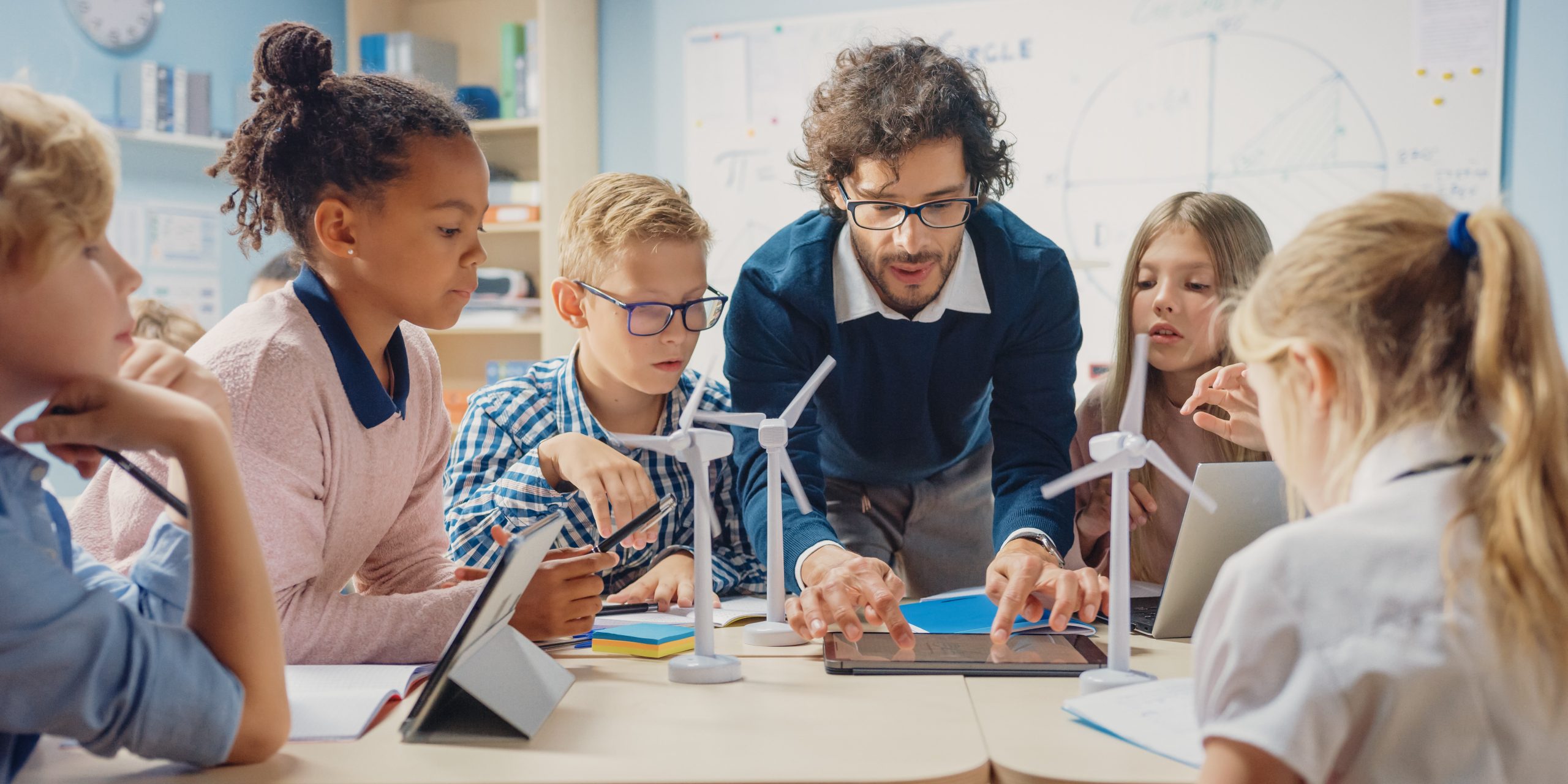Tailored Primary Science Tuition Singapore for Your Child’s Success
Tailored Primary Science Tuition Singapore for Your Child’s Success
Blog Article
Exploring the Various Teaching Techniques in Key Science Education Today
The landscape of key science education is advancing, with various training methods getting prestige in contemporary classrooms. Inquiry-based learning, hands-on experiments, and the combination of modern technology are redefining just how educators engage young minds. In addition, collaborative techniques and set apart instruction are being utilized to accommodate the varied needs of students, enhancing both involvement and understanding. As we examine these approaches, concerns develop regarding their effectiveness and the implications for future academic methods. What might these shifts in strategy mean for the future generation of learners?
Inquiry-Based Discovering
Inquiry-Based Discovering (IBL) is an instructional approach that urges pupils to discover clinical concepts via doubting, investigation, and hands-on trial and error. This method emphasizes the function of students as active individuals in their learning, promoting essential reasoning and problem-solving abilities. By involving with real-world inquiries, pupils end up being curious and motivated, which boosts their understanding of clinical principles.
In IBL, teachers work as facilitators, leading trainees as they navigate their queries as opposed to delivering details directly. This student-centered strategy permits differentiation, accommodating numerous learning paces and designs. Trainees create skills in formulating theories, developing experiments, and evaluating information, which are vital for scientific literacy.
Furthermore, IBL fosters partnership among pupils, urging them to share ideas and searchings for. This cumulative questions promotes social abilities and a feeling of area within the class. Moreover, the procedure of query urges resilience, as pupils learn to welcome failing as a stepping rock toward understanding.
Hands-On Experiments
Hands-on experiments are a crucial component of effective science education, complementing the principles of inquiry-based understanding. These experiments allow trainees to engage directly with clinical principles, fostering a deeper understanding via experiential discovering. By adjusting materials and observing results, young learners can grasp abstract concepts in substantial means.
Such tasks promote vital reasoning and problem-solving skills, as trainees hypothesize results, conduct experiments, and assess outcomes. This procedure encourages them to ask inquiries, refine their understanding, and develop a scientific mindset. Hands-on experiments can be tailored to diverse understanding designs, making sure that all students have the chance to engage meaningfully with the web content.
Moreover, hands-on experiments usually motivate partnership among peers, promoting team effort and interaction abilities. Working in teams allows students to share concepts, review searchings for, and find out from each other, which improves their general academic experience.
Including hands-on experiments into the primary science curriculum not just enriches the learning environment yet likewise cultivates a long-lasting interest in scientific research. By actively taking part in their education, trainees are most likely to develop a passion for scientific questions that extends beyond the classroom.

Modern Technology Assimilation
Incorporating technology right into key scientific research education has become increasingly crucial in cultivating trainee involvement and improving finding out results. The use of digital tools, such as interactive simulations, digital labs, and academic software program, provides trainees with opportunities to check out clinical ideas in ingenious methods. These sources promote a deeper understanding of complex subjects by permitting students to envision and adjust variables that would certainly be not practical in a typical class setup.
Moreover, modern technology assimilation motivates customized learning experiences. Students can progress at their own rate, taking another look at tough concepts through multimedia sources, which deal with different learning designs. This flexibility not just sustains individual growth but additionally cultivates a feeling of freedom in students.
Furthermore, technology offers as a bridge to real-world scientific research, connecting trainees with present study and expert payments. Access to clinical journals and on the internet data sources widens trainees' point of views on clinical query and cultivates crucial assuming abilities.
Collaborative Learning
Collaborative knowing plays an essential duty in primary click for more info scientific research education and learning by cultivating synergy and communication skills amongst students. This approach urges learners to collaborate, share knowledge, and participate in analytical, which enhances their understanding of scientific principles. By joining team activities, trainees learn to verbalize their concepts, listen to varied point of views, and bargain services, every one of which are essential abilities in both academic and real-world contexts.

Research study shows that collaborative knowing can bring about raised motivation and engagement in science subjects, as students discover enjoyment in shared experiences (primary science tuition Singapore). In addition, this method prepares pupils for future collaborative undertakings, furnishing them with the abilities necessary for efficient team effort in greater education and professional environments. Ultimately, accepting collaborative knowing in primary science education can significantly enrich the discovering experience and advertise a much deeper understanding of clinical query
Distinguished Guideline

Set apart instruction can materialize in different ways, such as differing the web content, procedures, or products of discovering. Educators might use tiered tasks that supply click this link varying degrees of complexity, enabling pupils to function at their particular readiness degrees. Furthermore, flexible organizing techniques can help with collaboration among trainees with different capacities, cultivating peer discovering.
Analysis plays a vital function in this approach, as it educates guideline and aids instructors comprehend each student's distinct requirements. Developmental evaluations, such as quizzes and monitorings, can lead instructors in adjusting their techniques to improve finding out results. primary science tuition Singapore. Eventually, by carrying out distinguished direction in main science education, educators can cultivate an extra fair and reliable discovering environment, empowering all students to reach their complete potential in recognizing scientific phenomena
Verdict
In recap, the diverse mentor methods in main science education, consisting of inquiry-based knowing, hands-on experiments, innovation assimilation, collective knowing, and differentiated guideline, collectively add to a more efficient knowing setting. These techniques promote essential reasoning, analytical abilities, and a deeper comprehension of scientific principles. By implementing these techniques, teachers can produce supportive and interesting class that attend to the diverse needs of pupils, eventually cultivating a long-lasting rate of interest in science and boosting academic success.
Inquiry-Based Understanding (IBL) is an instructional technique that urges pupils to explore clinical principles with doubting, investigation, and hands-on trial and error.Collaborative understanding check this site out plays an essential role in primary scientific research education and learning by cultivating teamwork and communication abilities amongst pupils.Study shows that joint understanding can lead to increased motivation and engagement in scientific research subjects, as trainees find pleasure in shared experiences.In cultivating a comprehensive learning atmosphere, distinguished direction arises as an essential approach to suit the diverse requirements and capacities of trainees in primary scientific research education. Ultimately, by applying separated instruction in key scientific research education, teachers can grow a much more equitable and effective learning environment, encouraging all trainees to reach their complete possibility in understanding scientific sensations.
Report this page